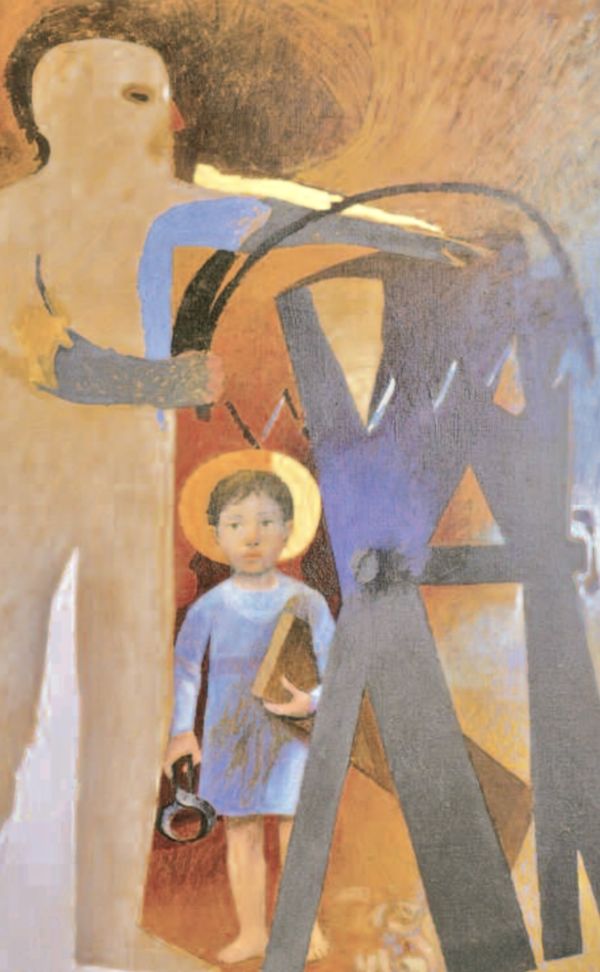(Jn 5:17-30)
The center of Jewish hope was the return to ancient times, which however moved into an indeterminate future ["last day"].
According to the Master, life as saved persons begins now, and from listening to his specific Word-Person (v.24) which supplants every code.
He attributes to himself a total (also juridical) caliber. It replaces the area once believed to be the prerogative of God alone: «He gave all judgment to the Son» (v.22).
Faced with the resounding of the present Logos and the Father's incisive and life-giving Dream which becomes actual, death loses all destructive efficacy.
The aspect of human and operative reality prevails over what to religions seemed to be reserved for the God of Heaven alone, and projected into a perfect future.
The Memorial is now. To redo the triumph - through Golgotha, here.
Impossible to confuse the scope of incessant life with observances.
Difficult to call God with the term Father [Abba, papa] if He transmitted to us the desire to be and to do, only with detachment.
The healing of the paralytic (vv.1-16) has in fact existential traits that pass in divine character. It is not comparable to the results of a doctor's activity, but to the work of the Spirit in us.
The time of man's diminution before the Most High is over: his plan is not for anguish, but for growth - which authentically manifests the Judgment of the Eternal.
Judgment: not of custody of order, but of love and regeneration. Human imprint in transmitting the divine condition (v.18) in fullness of being and freedom, in the intimate experience of his Heart.
Jesus expresses immanence with the Father by expanding his creative work, which is by no means finished: it continues to vivify us.
God supports the universe and our being, so He’s always active. Here and now; not on the other side of time - therefore He doesn’t incline to the quiet drowsiness of conscience.
The Father always works, the Son - his first and incessant imprint - imitates his quality of action in continuity.
It’s a concrete Pact for the people: His Council all to be implemented, really comes to us.
To this end, He’s not afraid to transgress an approximate and narrow precept, an idol of the sacred, albeit very devout, ancient tradition.
Moreover, even in the sabbath rest [!] the Creator blesses and consecrates (Genesis 2,3).
The whole multiple history is in a sort of unity’s principle: time of intervention for salvation and relationship with the Mystery.
Wherever we proceed, those who reflect God do not stun of prejudices on human reality: instead they are already there and remain indefinitely.
Sons in the «Son of man» (v.27) - to dialogue, open, support, give refreshment, make every situation intense and delicate.
Honoring the Most High is honoring humanity in need of everything, at any time.
Only this ‘manifests’ Him, even in ‘infractions’ - a land rich in new springs that shorten distances.
This is the reciprocal and singular Work of God (Jn 6:29): to love, not «works» (v.28) heavy with law and nomenclature.
[Wednesday 4th wk. in Lent, April 2nd, 2025]












